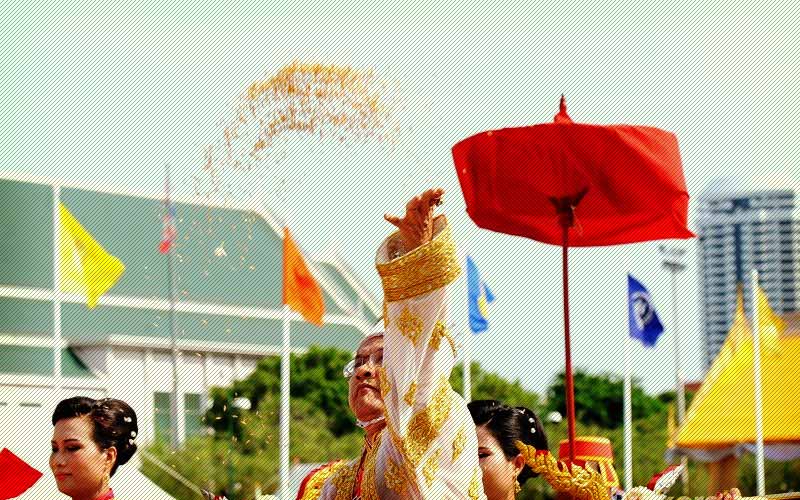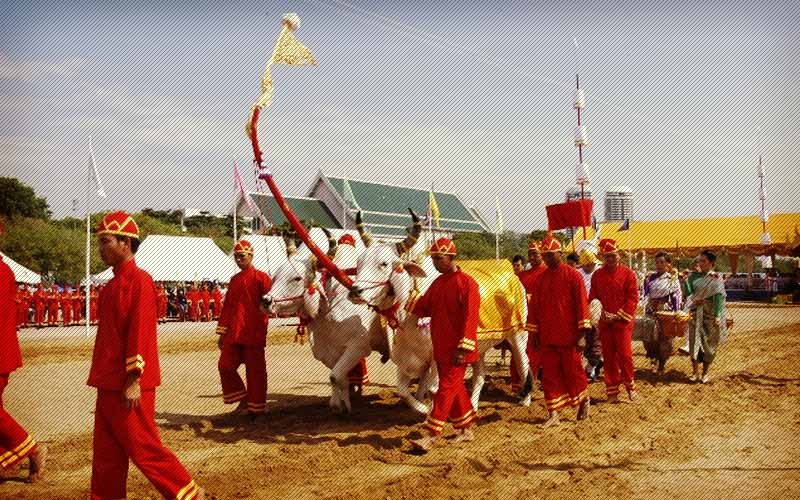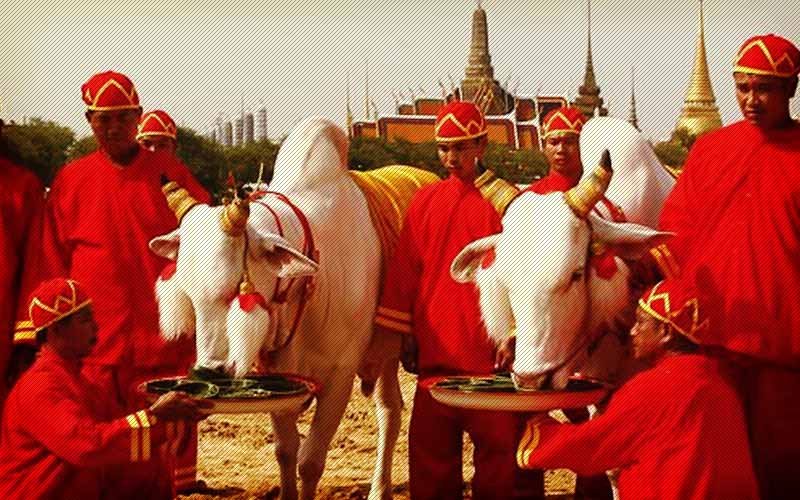Thailand has many old customs; the Royal Ploughing Ceremony is a fertility rite that has been observed for centuries. More than 700 years old, the ceremony was originally performed in India before making its way over to Thailand. In the 1920s, the ceremony was abandoned but was revived several decades later by King Bhumibol Adulvadei.
Witnessing these ancient customs can be enlightening if you’d like to experience the nation’s true culture; keep reading to find out more about the Royal Ploughing Ceremony and why it is such an important Thai tradition.

Astrological predictions
The Royal Ploughing Ceremony is held in Bangkok at the start of Thailand’s rice-growing season in May but the exact date varies from year to year depending on lunar cycles. This year, the ceremony will be held on May 9th.
Superstition and tradition have long been part of Thai culture and the Royal Ploughing Ceremony is an age-old custom used to determine the outlook for the nation’s crops for the rest of the year.
There are a few different elements to the ceremony that involve superstition and predictions by prominent astrologers, and one of these in particular is selected by the king to be the Lord of the Harvest on the day of the ceremony. It is the job of the Lord of the Harvest to carry out a number of rituals, in-keeping with tradition.
The Lord of the Harvest
The Lord of the Harvest is tasked with predicting rainfall for the rice season by fulfilling several important rites, one of which is to choose a cloth from a selection of three; the cloths appear the same but are in fact different lengths.
If the Lord of the Harvest selects the shortest cloth from the three options, it means there will be lots of rain during the coming season, while the opposite is true of the longest cloth. Ideal conditions can be expected if the mid-length cloth is selected.
A procession follows this ritual, including drumming and chanting, with sacred bulls pulling a red and gold plough through the area, and four consecrated women carry baskets of rice seed alongside. The sacred bulls plough three holes in the ground and the Lord of the Harvest sprinkles them with the seeds, which many onlookers then rush forward to collect for good luck.

The oxen foretell the fate of the crops
The next part of the ceremony sees the sacred bulls presented with a selection of seven different choices of food and drink. What the oxen pick is used to forecast the fate of the crops for the coming season.
Whatever the bulls choose to eat or drink from the bowl is expected to be plentiful in the year ahead; if the oxen eat green beans or sesame, it is the native belief that food will be abundant, while if they drink the liquor presented to them, foreign trade is forecast to be flourish. Meanwhile, if the bulls eat rice or maize, it symbolizes a plentiful harvest.
Should the oxen fail to eat or drink anything, this is seen as a disaster, so the bulls are often put on a diet before the ceremony to ensure they consume something during the rite.
The meaning of the Royal Ploughing Ceremony
Agriculture is extremely important in Thailand, where many people are invested in farming and exports of crops to foreign countries can be lucrative, thus the ceremony is a prominent event. It is also a way of strengthening morale among farmers and encouraging an abundant harvest.
Some years ago, the day of the Royal Ploughing Ceremony was also named Annual Agriculturists Day, or Farmers Day, highlighting the importance of farmers to the country’s prosperity. Agriculturists are honoured by the royal family on this day and called upon to bring good luck and a plentiful harvest for their country.
During the ceremony, rice seeds are sown at the king’s own home, Chitralada Palace. Any farmers who cannot attend the ceremony to collect some of the king’s seeds are sent a separate batch grown throughout the different Thai provinces.
Thailand is a nation rich in fascinating culture and customs; there are sure to be all sorts of events to witness regardless of the time of year you volunteer in Thailand. The Royal Ploughing Ceremony provides an insight into a key Thai industry and the chance to observe just how important agriculture is to the nation, as well as the opportunity to witness age-old tradition. Find out what else you can see and do during a volunteer vacation in Thailand by downloading our country guide.
